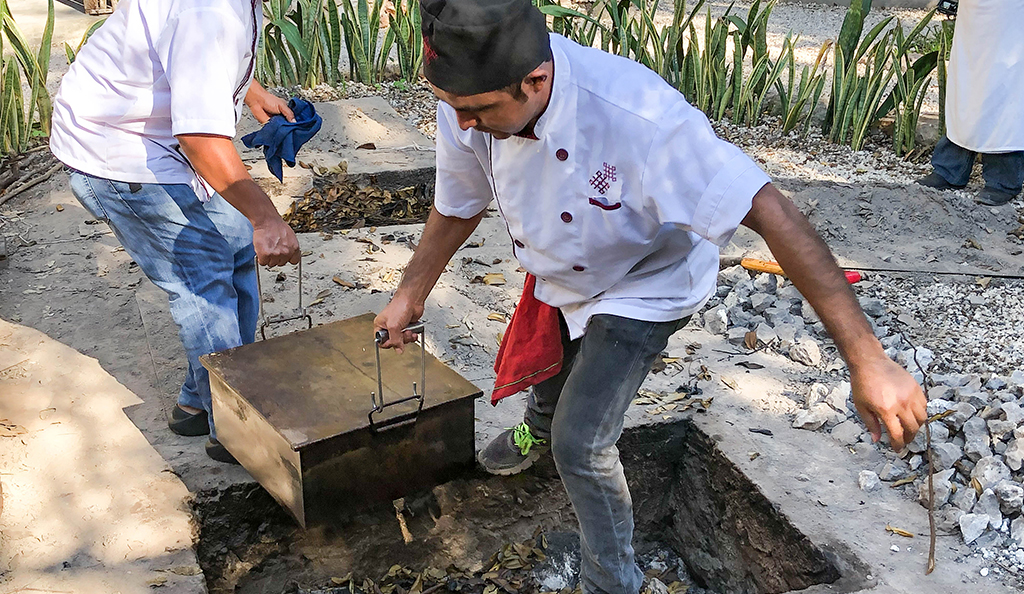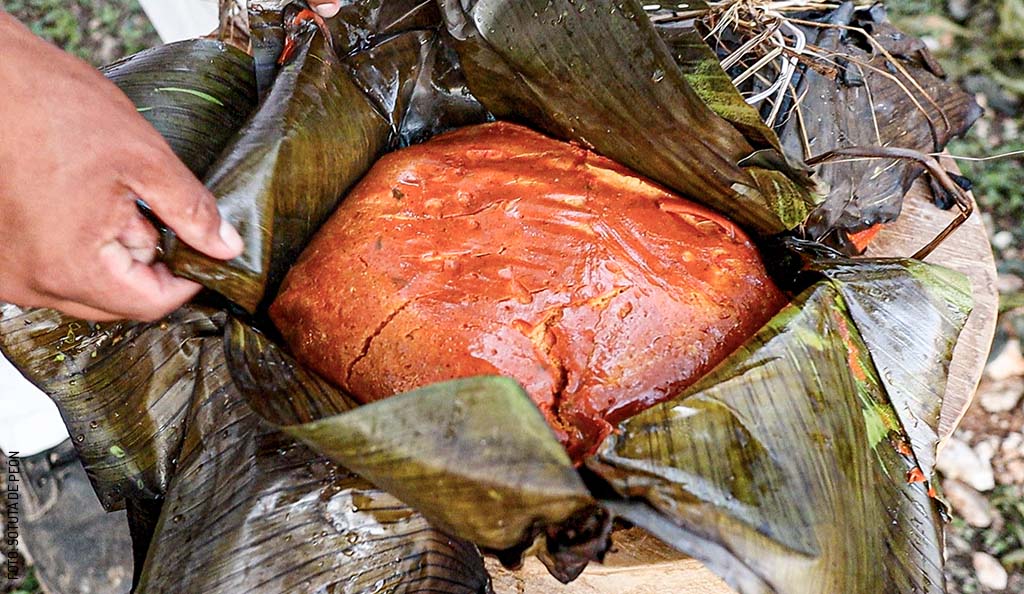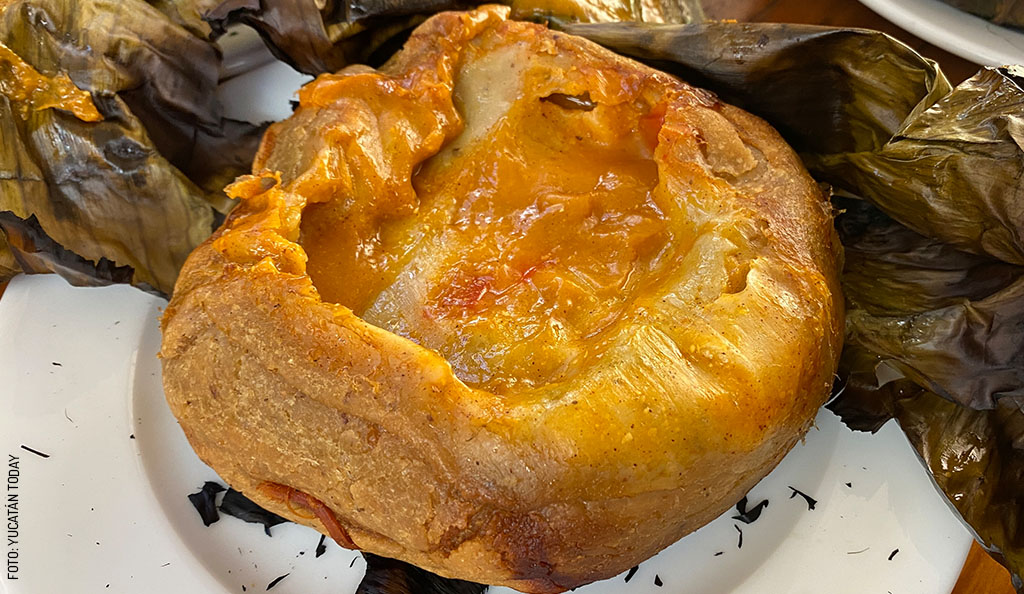
Four Different Ways to Enjoy a Mukbilpollo
All across México, the traditions around the Day of the Dead are filled with folklore, colors, smells, and flavors. All of these are especially unique in Yucatán, where the celebration even has a different name: Janal Pixan.
Janal Pixan, pronounced (and sometimes obsoletely spelled) Hahn-ahl Pee-shahn ) means "food for the souls" in the Maya language. And food happens to play a very important role during these dates, with Mukbilpollo or Pib being the unmistakable staple of any altar.
Mukbilpollo, like many other dishes from Yucatecan cuisine, may seem simple, but in reality, it involves a series of steps and essential ingredients to achieve the desired result. To better understand its significance for the people of Yucatán, make sure to read the article "Mukbilpollo, the Ritual of Melancholy" written by Raúl Gasque. But what you really have to know is that Mukbilpollo or Pib is the only dish that the spirits of our loved ones can take back to the underworld. For generations, Yucatecan families, regardless of position or class, have gathered around this dish to commemorate those who are no longer with us.
However, the process of making Mukbilpollo is lengthy and labor-intensive, and it requires a lot of oven space if you are to make the most of your hard work. Therefore, it is becoming increasingly common to delegate this preparation to experts and to order or buy "Pibes" from those who have the capacity to make them. If this is your case, here are four different ways to savor a Mukbilpollo during what we call the season of the deceased.
1. Learn how to make it from absolute scratch: Tierra Pachpakal - Solar Maya, Maní
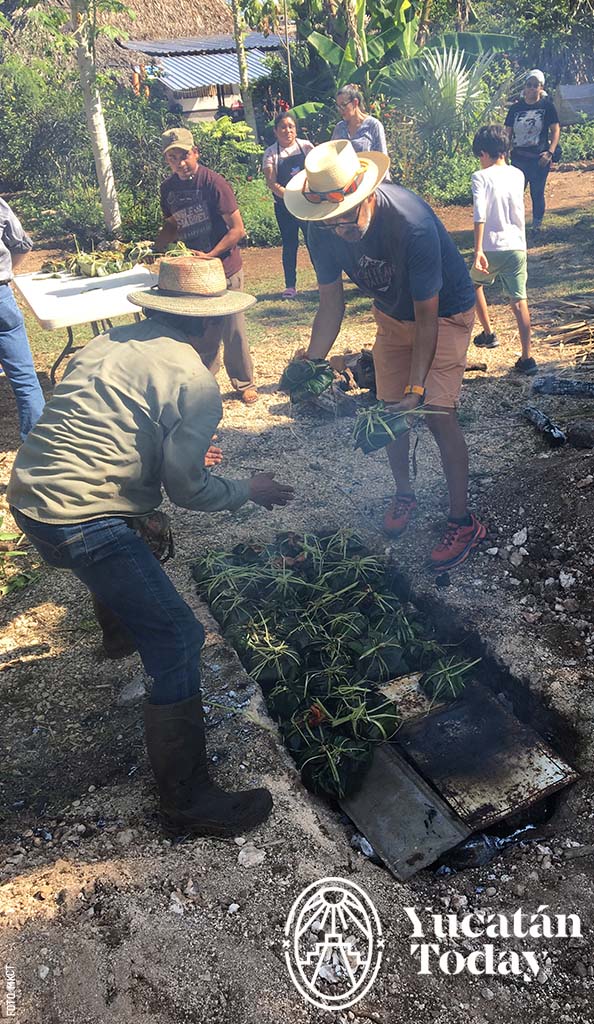
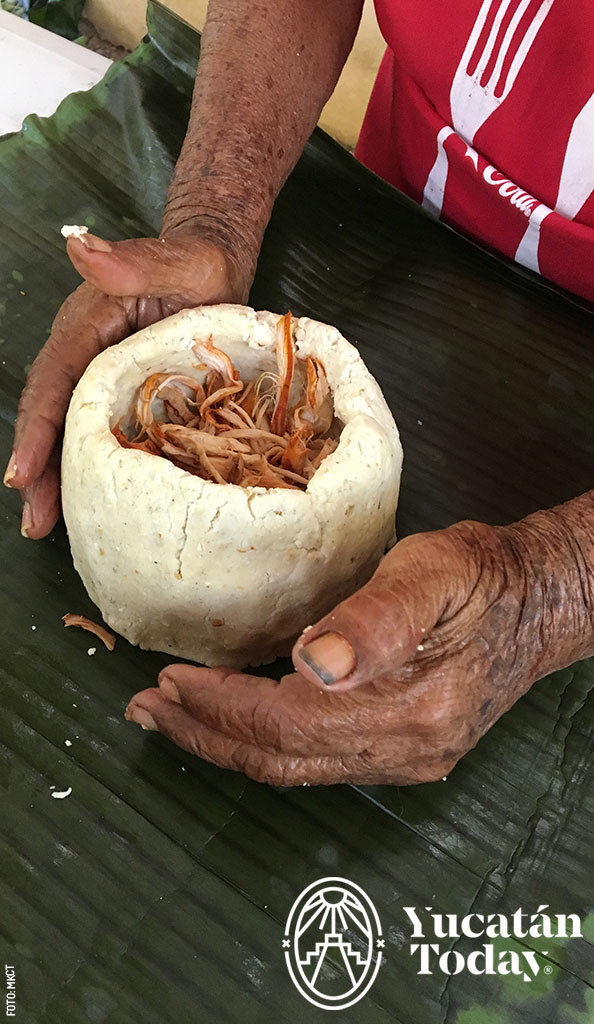
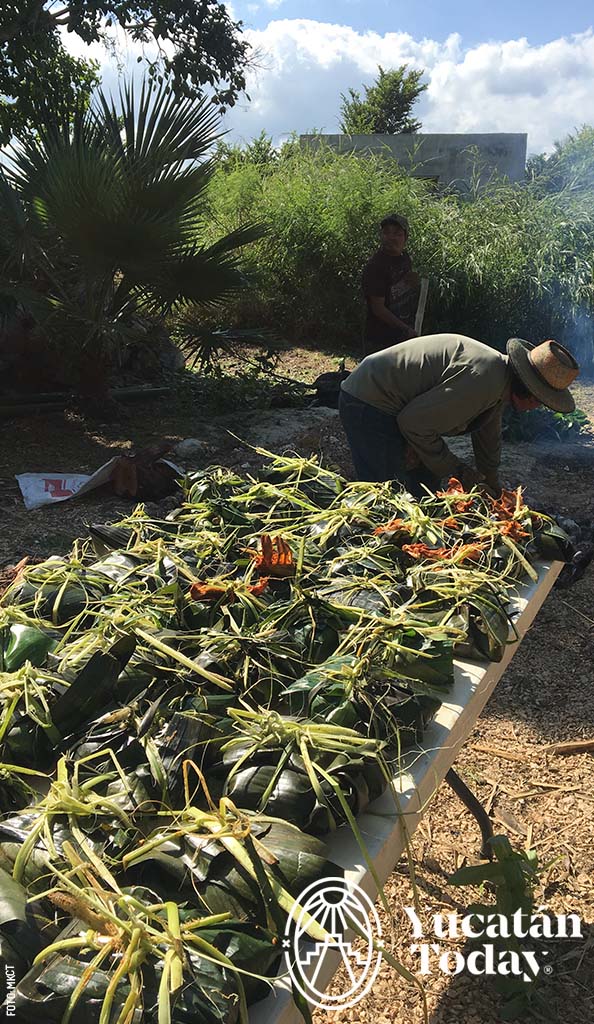
Tierra Pachpakal - Solar Maya, located in the municipality of Maní, offers an experience that can be enjoyed by people of all ages. Fátima and José welcome you into their home as if you were a member of their family; as your hosts, they’ll be sharing a very special, personal, and traditional experience: learning about this tradition from Fátima's grandmother, who, in Maya language, will guide you from start to finish in making your own Mukbilpollo.
Roasting, cleaning, kneading, shredding, shaping, filling, wrapping, and tying are just a small part of what you will do. The use of utensils is practically minimal, so be prepared to get your hands dirty, wash, and use them throughout the process. Each step of the procedure is accompanied by a detailed explanation of each ingredient’s origin and preparation, all in a natural and familial atmosphere, like a conversation with your own grandma as you prepare your dish. Here, all questions are welcome and enrich the interaction among all participants, culminating in sharing the table and the meal as one big family at the end of the day.
But let me tell you about how the Píib, the Maya name for the underground oven where we will cook our delicacy, is prepared. Collecting small stones and placing them on a bed of branches in a previously dug pit will make you curious about this cooking technique. Once you’ve tasted the food and seen how it turns out, you'll want to make one in your backyard when you get home. While waiting for the Píib to do its work, you'll participate in the beautiful ritual of setting up the altar, learning about its elements and significance. You see, the experience isn't complete unless the Mukbilpollo has an altar to rest on. An added bonus is that you'll have dessert guaranteed (candied wild papaya and yuca, a delight if you enjoy the taste of caramel) because it must also be placed on the altar. Once the Pib is ready to be unearthed, it's time to place one on the altar, give thanks, share, and take yours, accompanied by a delicious and refreshing orange juice from the family orchard.
At the end of the day, all your senses will be in a state of ecstasy. You'll feel tired and satisfied, but most importantly, you'll understand why Mukbilpollo is so significant and at the heart of a tradition, why everyone eagerly anticipates this moment year after year, and why it's a family effort in which everyone actively participates with their work, knowledge, and experience: it's all done to lovingly welcome their departed loved ones.
Tierra Pachpakal - Solar Maya
Fraccionamiento Aviación, Maní
Tel: 997 128 7200
IG: solarmayamani
FB: solarmayamani
2. Make your own, with help (year-round!): Restaurante Lol-Béh, Maní
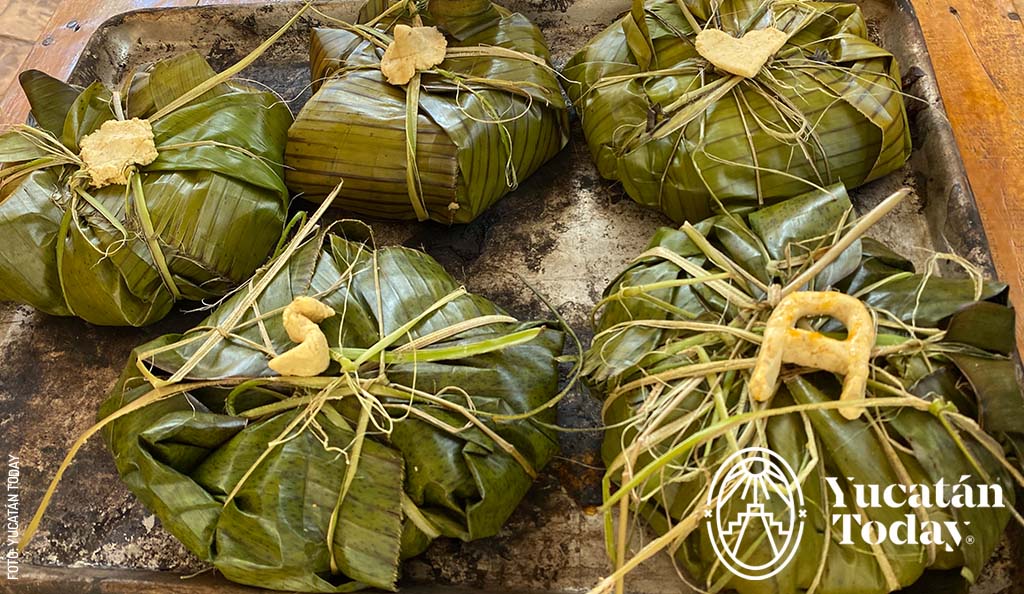
If you're interested in learning about the Mukbilpollo preparation process but aren’t exactly excited about spending a whole day making one, the workshop offered by Lolbéh Valle Uc (also in Maní) is just what you need. By the time you arrive, Lolbéh and her family will have already prepared the masa, shredded the chicken, chopped the tomatoes, onions, and habanero peppers, and cured and cut the banana leaves. But the work will be far from over; you’ll be in charge of shaping the masa into a sort of well, and you’ll decide how much of each ingredient you’d like on your own personal Pib, made entirely to your liking, with Lolbéh's guidance and support, of course.
Next comes what you might think is the simplest step: wrapping the Mukbilpollo with banana leaves. However, keep in mind you’ll be making Pibes without the "lata," which is what we call the galvanized steel tray where they are now usually prepared. You will need to wrap it carefully, as if it were the most fragile Christmas gift, and then tie it up to ensure it is ready to be handled safely without getting flattened or, worse, leaking.
Once well wrapped, you can come along to watch Lolbéh place it in the large wood-fired oven behind her restaurant (here, the Pib is not made in a Píib). At this point, you get some free time to explore Maní and all it has to offer, or even participate in some workshops.
Cooking time, our hosts told us, is approximately 40 minutes; however, you can take as long as you need for your activities, as they will keep it warm for you to enjoy whenever you come back for it. If you wish, in addition to (or instead of) the Mukbilpollo, you can prepare or order a Pan de Espelón bread. This is very similar to the Pib, as it is also made with dough, wrapped in banana leaves, and baked, but it does not have a filling and is eaten with tomato sauce.
An important aspect to highlight about this workshop offered at the Lol-Beh restaurant in Maní is that it is available year-round, with prior reservation. And if you're not really interested in learning how to make a Pib but are more than willing to eat one, they serve and prepare them every Saturday and Sunday of the year.
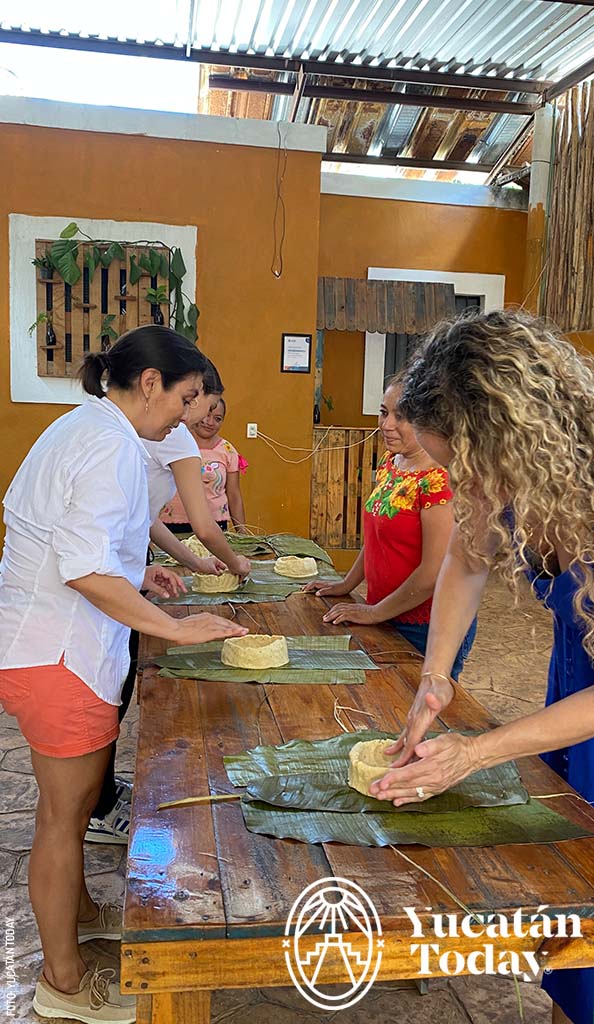
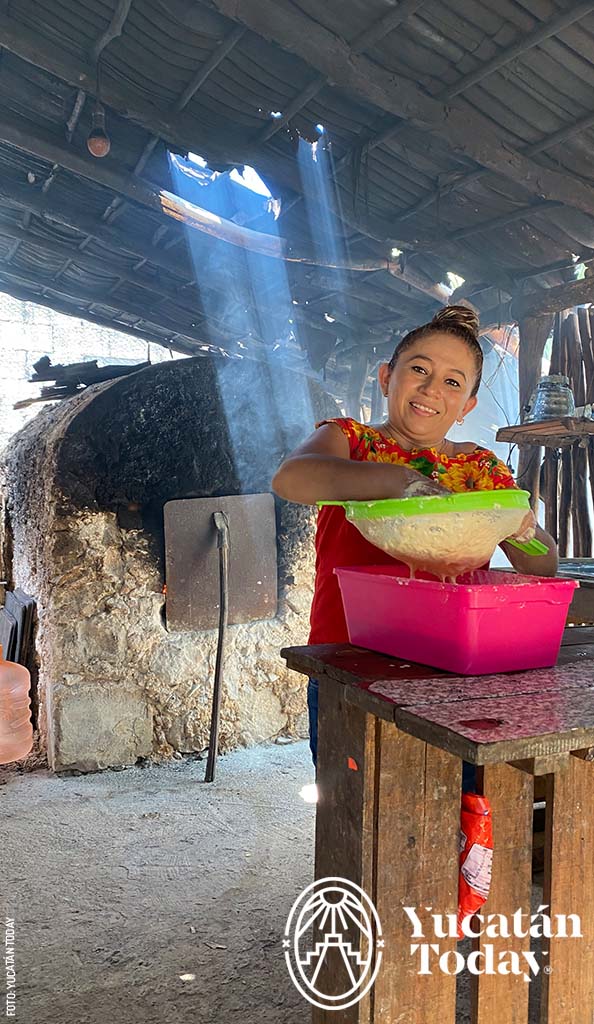
María Lolbéh Valle Uc
Calle 27 por 28 y 26, Centro, Maní
Cel. 997 166 4565
FB: Restaurante Lol-Beh
![Mukbilpollo by Sotuta de Peón]() 3. As part of an experience: Hacienda Sotuta de Peón
3. As part of an experience: Hacienda Sotuta de Peón
Hacienda Sotuta de Peón (which, we should note, is an advertiser in Yucatán Today), is renowned for offering the unique experience of delving into the history and process of Henequén, the plant and fiber so crucial to the identity of Yucatán to this day. Visit between November 2 and 5 and you will also get the extraordinary opportunity to taste the Mukbilpollos prepared at this living museum.
Hacienda Sotuta de Peón boasts an organic garden from which fresh ingredients are sourced to make Pibes: tomatoes, epazote, banana leaves, and even achiote (annatto seeds). The preparation will be overseen by Chef Florencio Chuc, who just happens to have been born in Sotuta de Peón, and who has been sharing the knowledge and flavors of his Maya heritage in the hacienda’s restaurant for years.
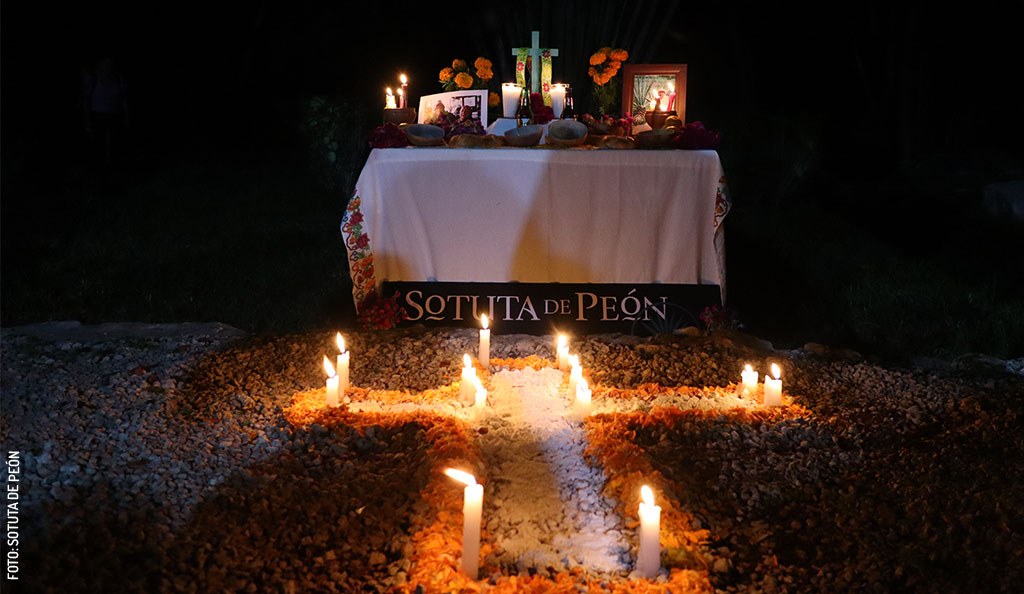 After learning about the various ways to process Henequén through the adventure of your choosing (by truck, ATV, swimming in a cenote, etc.), you can now decide whether your Pib (with espelón) will be made with chicken, pork, or both. At Sotuta de Peón, all Pibes are cooked underground in a Píib; inquire at the time of making your reservation, you might have the opportunity to take a peek at the earthing (or unearthing) process and learn more about it.
After learning about the various ways to process Henequén through the adventure of your choosing (by truck, ATV, swimming in a cenote, etc.), you can now decide whether your Pib (with espelón) will be made with chicken, pork, or both. At Sotuta de Peón, all Pibes are cooked underground in a Píib; inquire at the time of making your reservation, you might have the opportunity to take a peek at the earthing (or unearthing) process and learn more about it.
Hacienda Sotuta de Peón
Tel. 999 941 6431
WhatsApp: 999 175 9923
www.haciendaviva.com
IG: haciendasotutadepeon
FB: Hacienda Sotuta de Peon
4. Enjoy one at Hacienda Teya (or take it anywhere you please)
Hacienda Teya has been offering the best of traditional Yucatecan flavors in a unique setting for decades, from its original location 12 kilometers or 7 miles from Mérida (off the Cancún highway) to its two restaurants in Mérida’s Centro: Teya Gastronomía Yucateca Viva on Paseo 60, and more recently, Restaurante Teya in Santa Lucía.
It's not surprising that this Yucatecan culinary institution (also an advertiser in Yucatán Today) will also be offering diners several Pib options to choose from.
If you visit any of their three restaurants between October 20 and November 5, you can order a personal Pib right to your table. You can choose between a traditional one (with pork and chicken) or one filled with their delicious Cochinita Pibil. Here, the Pibes are prepared with espelón (beans); personally, in my family, Mukbilpollos don't include this ingredient, so it was relatively recently that I tried them this way, and I must say I loved the new texture they acquire.
But what if you want a Pib to share with friends or family? Hacienda Teya will also offer family-sized versions for takeout. These will be available exclusively upon request with two days' notice; make sure to reserve yours in advance.
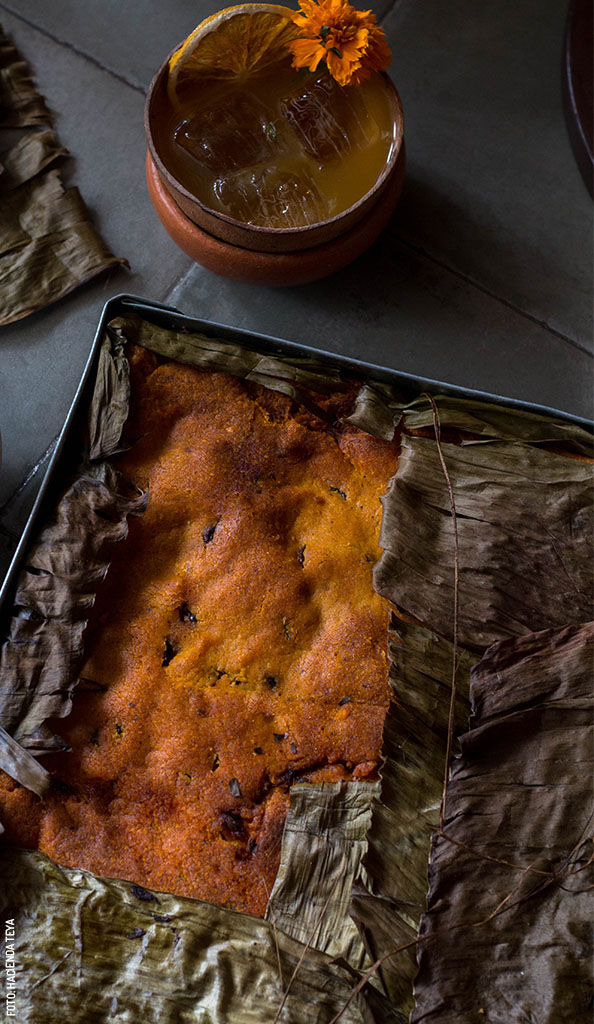
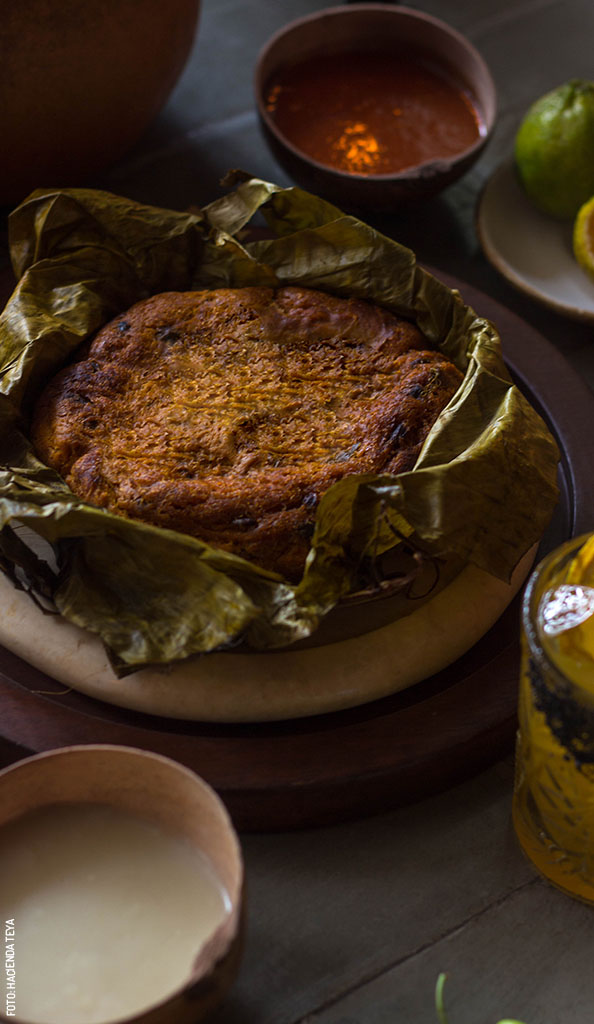
Hacienda Teya
Carr. Mérida - Cancún Km 12
Tel. 999 429 2431
Restaurante Teya Santa Lucía
Calle 60 #468 x 53 y 55, Centro, Mérida
Tel. 999 923 9964
Teya - Gastronomía Yucateca Viva
Paseo 60: Calle 60 x 35 y Av. Colón, Centro, Mérida
Tel. 999 141 0248
More options
Casa de Piedra at Hacienda Xcanatun, Angsana Heritage Collection
Pibes as part of a six-course tasting menu, Wednesday November 1, 6:30 pm
FB: Hacienda Xcanatun
María Raíz y Tierra
Monday October 30 through Saturday November 4, Ticul-style oven-baked Mukbipollo for two Hotel Villa Mercedes Curio Collection by Hilton Av. Colón #500 x calle 60, Centro, Mérida
IG: mariaraizytierra
La Tradición
Ceremonial tamal, October 30 through November 2
IG: latradicionmid
Museo de la Gastronomía Yucateca
Tuesday, October 31 through Saturday, November 4, large Pibes, no lata; upon request one day in advance.
IG: mugymx
Ya’axche Centro Etnogastronómico
Pib-making workshop, Pixan table setup, and lighting of the candles. October 29 Order for Mukbilpollos on November 1, with 3 days in advance.
IG: y.aaxche
Photography by MKCT, Hacienda Sotuta de Peón, Hacienda Teya, and Yucatán Today for use in Yucatán Today.

Author: Alicia Navarrete Alonso
As a kid I heard that there's more to see than can ever be seen and more to do than can ever be done, so I set out to try. I'm passionate about knowledge and I love to share whatever my own is.
In love with Yucatán? Get the best of Yucatán Today delivered to your inbox.
Related articles
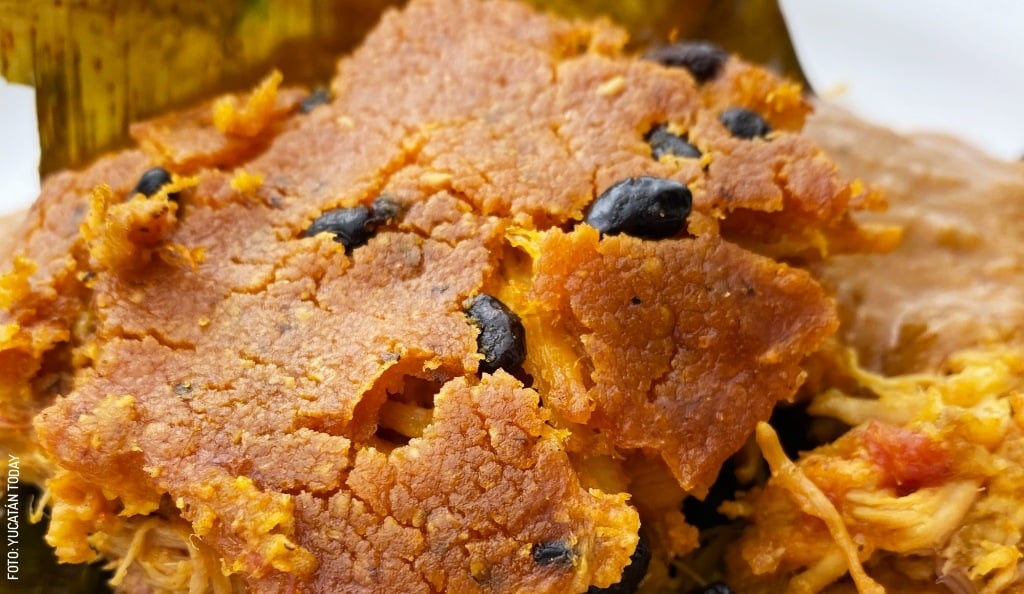
An authentic recipe for Yucatán’s mukbilpollo or pib—for beginners
Make your own Pib or Mukbilpollo (Día de Muertos tamal) from scratch: detailed instructions on how to make it at home, step by step.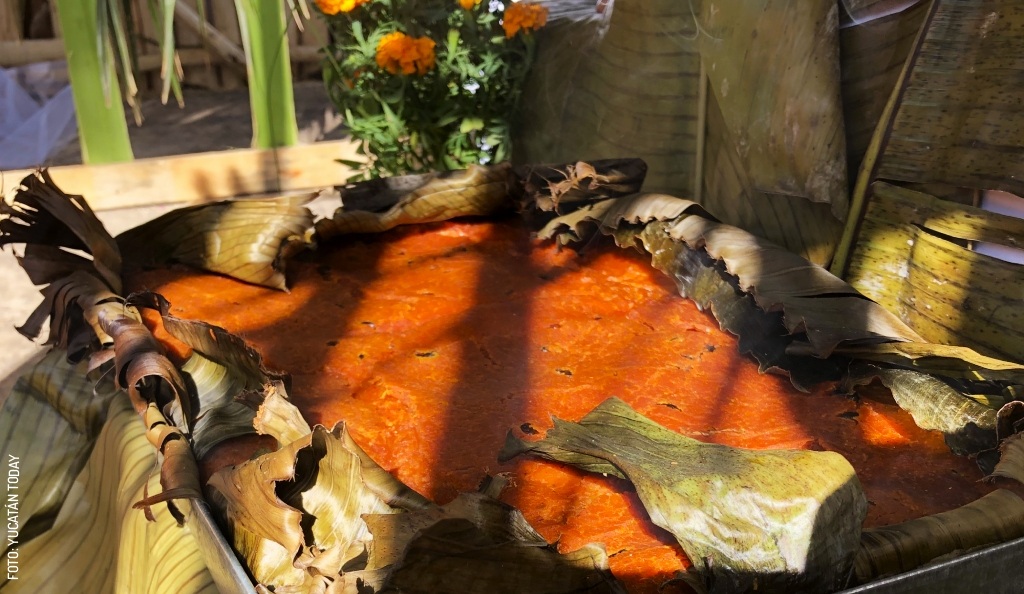
All about Pib, a traditional Yucatecan Day of the Dead dish
Everything there is to know about this delicious Yucatecan dish, a staple of the Janal Pixan season: its meaning, ingredients, history, and more.